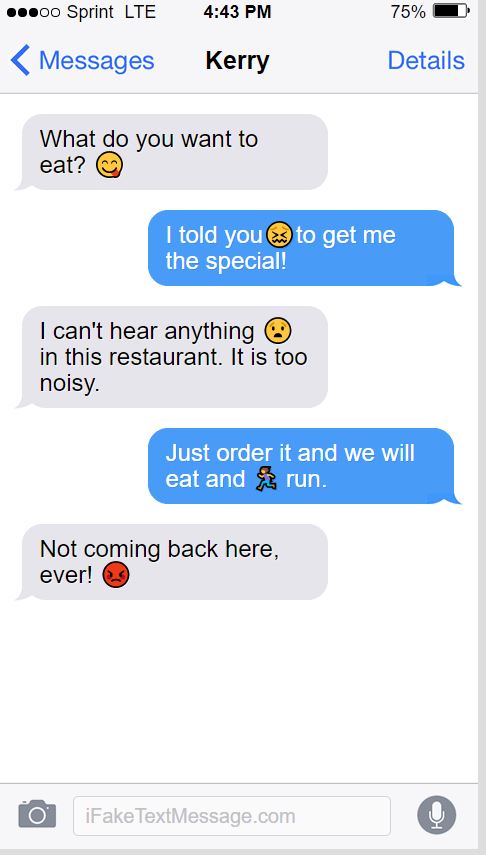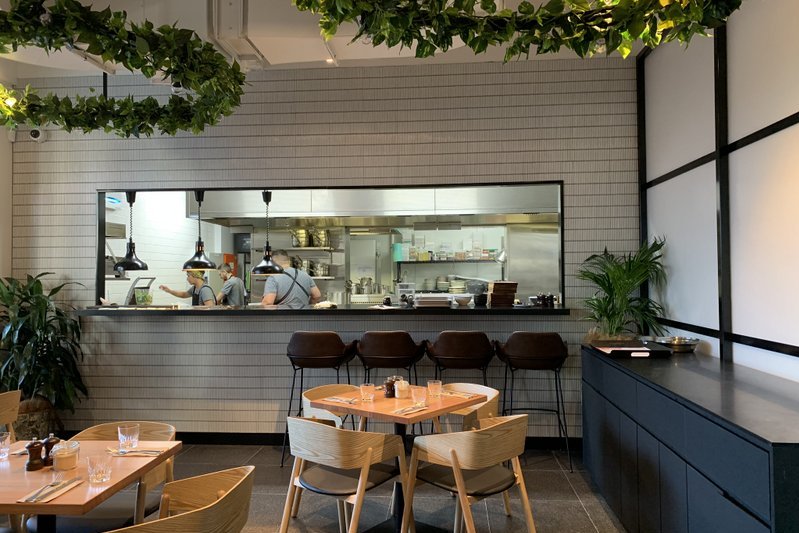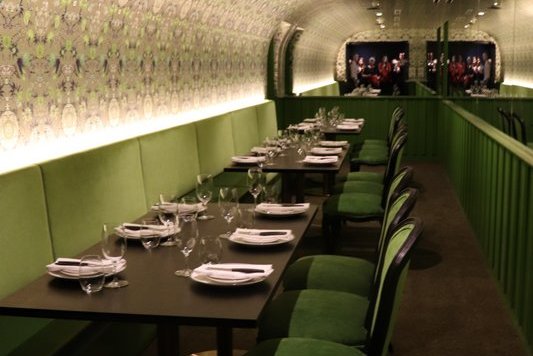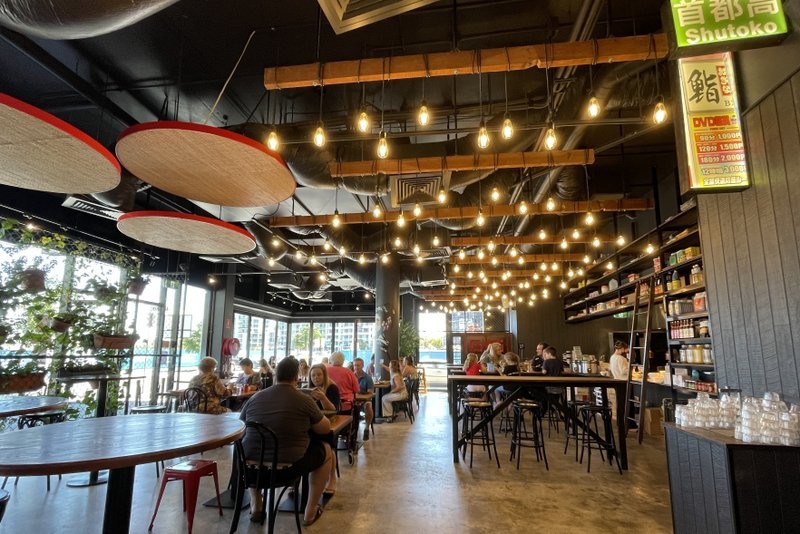Discover the culprits behind deafening restaurant noise levels! Tired of dining out feeling more like a shouting match than a leisurely meal with friends? We’ve all been there, and the culprits behind those deafening restaurant noise levels might surprise you. Don’t despair, because in this post, we’re not only going to unveil the reasons why some restaurants seem to have an affinity for excessive noise, but we’ll also arm you with the knowledge on how to find a quiet restaurant and, if you’re a restaurant owner, how to reduce noise levels to create a more enjoyable dining environment for everyone. Say goodbye to the chaos, and let’s embark on a journey to rediscover the joy of peaceful dining experiences!
Do Restaurant Noise Levels Impact on Food Enjoyment?
From the couple who had to communicate via text messages to order to the person who left the venue because he could not stand the loud playlist, it’s clear that noise and dining have become unwelcome companions for many.
Laboratory research by Flinders University PHD candidate Mahmoud Alamir has shown that restaurant and traffic noise negatively affects food enjoyment. They were working with three different noise type levels, road traffic noise, restaurant noise and relaxing music. at 30, 40 and 50 A-weighted decibels (dBA), which is a measurement of sound as perceived by the human ear. I regularly measure ear-splitting levels of 90 decibels and above in busy restaurants.
The study found that restaurant and traffic noise at all levels reduced people’s enjoyment of food. However, here’s the real kicker that restaurant and cafe owners need to know, the food tasted worse the louder those noises became!
For the one in six Australians living with some sort of hearing loss, the problem is compounded. They really need to find a quiet restaurant. I’m one of them. One day five years ago started out completely normal and quickly progressed to a hospital stay and hearing loss in one ear courtesy of a virus. My hearing never came back, which makes me particularly sensitive to loud noise. Since my hearing is compromised, I make judgements on noise levels based on my dining companion’s reactions and a decibel measuring app on my phone when choosing a dining venue.

Why are restaurant noise levels so high?
Why are restaurant noise levels so high? The days when restaurants were filled with soft, sound-absorbing upholstered chairs at cloth-covered tables in carpeted rooms are gone except for some fine dining establishments. Now the trend towards warehouse styling sees plenty of exposed brick, polished concrete, open ceilings and hard chairs. Tables are crowded together, and tablecloths have disappeared along with anything soft in the room. Instead of soaking up the sound, these finishes reflect and amplify, bouncing it around at an alarming rate. You have to talk louder too, and so does everyone else.
Research shows that prolonged or repeated exposure to sounds at or above 85 decibels (dBA) can cause noise-induced hearing loss. When you leave a noisy environment and you can’t hear clearly or have ringing in your ears, these are signs of too much noise exposure.
Background music is another issue. It’s called background music because it is in the background, not loud enough to make you think you are in a nightclub. If the music is too loud, diners can’t enjoy the company of others. Another side effect is that sore voice because you have had to yell all night.

When did restaurants become so loud?
It’s tough to make money in the restaurant business, so owners have to think carefully about where they spend money. Unfortunately, sound control does not seem to be high on the list for many. This is not a good move because customers who find your noise levels uncomfortable won’t enjoy their experience. Diners won’t come back to your restaurant, and they won’t recommend it to others.
According to the American restaurant review website Zagat, the second most common complaint from restaurant customers is noise, closely followed by lousy service and bad food.
Good acoustics can be expensive, but there are simple solutions. I have a list for interested restaurant owners at the end of this story.

Who are the loudest diners?
We all know that moment when the noise level in the restaurant suddenly escalates at the table next to you. You would guess families with young children would be the main offenders here, but no! It’s the large groups of young people, usually women, who make the most noise. Think birthday gatherings or hen’s nights when, after more than a few drinks and a lot of excitement, people seem to forget to use their inside voice.
How to find a quiet restaurant
Use these seven tips to find a quiet restaurant, and you have the best chance for a pleasant experience where you can hear what your dining companions are saying.
- I’ve discovered SoundPrint, an app that allows you to measure sound and then share that in a rating on the app to help others find a quiet spot to eat. It’s a great place to find a quiet restaurant.
- Measure noise levels when you are out to help find quiet spots.
- Dine early before the crowds.
- Ask for a quiet table or in an area off to the side, outside or away from overhead speakers.
- Ask them to turn the music down.
- Complain about the noise levels. If there are enough complaints about the noise, restaurant managers may understand that they’re doing something wrong.
- Choose your venue carefully. Some places are always going to be noisy because of their high ceilings, exposed brick walls, concrete or tiled floors, which just bounce the sound around. If there are no soft furnishings (tablecloths, upholstered chairs, curtains, cushions) to soak it up, this is going to be a noisy place.

Seven ways owners can reduce noise in a restaurant
It’s not hard to reduce noise in a restaurant and make your venue attractive to people who are looking for quiet dining.
- Install carpet in high-traffic areas
- Install wall or ceiling panels or both
- Add some curtains and cushions
- Put tablecloths on the tables
- Remove loud machines from the dining area.
- Make sure your air conditioning is running quietly
- Invest in a good stereo system and speakers.
There will be those who say this noise is just a problem for older people, and, indeed, older people are more affected by noise. However, hearing loss is cumulative, and those with excellent hearing today could be damaging their future hearing by exposure to the same noise levels that are sending other customers away.


Oh, this is such a bug-bear for me. I continually whine about noisy restaurants. There have also been studies that show that too much noise can interfere with the way customers taste their food. Surely that’s enough to make some of these places rethink their addiction to what they euphemistically call a ‘buzzing atmosphere’.